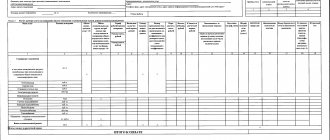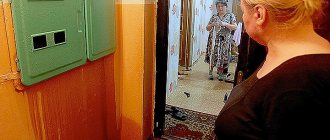Free legal consultation: +7 (499) 938-42-95 Moscow and region. +7 (812) 425-13-93 St. Petersburg and region. 8 (800) 333-42-87 other regions
One of the main rules of living in an apartment building is to use the residential premises for their intended purpose, without violating sanitary standards and the interests of other citizens.
Often the topic of conflicts becomes pets , whose residence in an apartment does not always comply with legal requirements.
Dear readers! Our articles talk about typical ways to resolve legal issues, but each case is unique. If you want to find out how to solve your particular problem, please contact the online consultant form on the right or call the numbers below. It's fast and free!
What laws govern this issue?
It should be noted that issues regarding the residence of animals and their proper maintenance are not sufficiently regulated in Russian legislation, which often leads to conflicts and even litigation.
The main legislative acts with the help of which the legal regulation of relations regarding the keeping of pets is carried out:
- Decree of the Government of the Russian Federation of January 21, 2006 No. 25 “On approval of the Rules for the use of residential premises”;
- Federal Law of March 30, 1999 N 52-FZ “On the sanitary and epidemiological welfare of the population”;
- Law of the Russian Federation of May 14, 1993 N 4979-1 “On Veterinary Medicine”.
At the moment, a bill has been developed (but not yet approved) that is dedicated to keeping pets - the “Law on the Responsible Treatment of Animals.”
Some separate provisions regulating the rules for the use of residential premises and the residence of animals in them are contained in the Housing, Civil and Administrative Legislation.
Local authorities of constituent entities of the Russian Federation have the right to approve their legislative acts regarding the rules for living pets in apartments.
These may be rules, regulations or requirements adopted by a separate executive branch and not inconsistent with federal law.
If you want to know how to deal with noisy neighbors, we advise you to read the article.
Control and responsibility
Control will be carried out by authorized environmental and veterinary supervision bodies, as well as other structures and their divisions. The law introduces the concept of an inspector. This is a person who will be able to cooperate with government supervisory authorities on a voluntary basis and conduct an inspection of how the animal is kept.
Volunteers will receive certificates confirming their credentials. They have the right to legally conduct video and photography when the current situation concerns the treatment of animals, and can visit shelters.
What kind of pets are considered domestic?
There is no clear concept of “pets” in the legislation.
What kind of pets can you have in your apartment? A citizen can have either a familiar cat or dog or an exotic animal - a tiger, an alligator, a python.
There are no direct prohibitions regarding the possibility of keeping such animals in the law, the main thing is that its residence in the apartment does not contradict the rules of the hostel.
When can an animal be considered a pet?
- It must be registered (a veterinary passport is issued for some animals);
- The animal must be vaccinated against rabies;
- (treatment against fleas, lichen and other dangerous diseases) must be applied to the pet
If these requirements are not met, the animal will not be considered domestic, and certain liability will be applied to its owner..
Where to walk
The bill clearly establishes the places where pets can be walked. For such a territory, special requirements are established:
- The area of the area intended for walking should not be less than 400 square meters. m;
- The dog walking area must be located at a sufficient distance from residential buildings (at least 45 m from public institutions and 20 m from residential and office buildings);
- Places intended for walking animals include parks, groves, and squares.
It is prohibited to walk animals in places where many people, especially children, gather: sports and children's playgrounds, near medical and educational institutions.
To organize dog walking areas in large cities, areas marked with special symbols are equipped. At such sites, special containers are installed to receive waste.
Watch the video. Pet Rules and Laws:
Rules for keeping cats and dogs
The main requirements noted in the legislation that relate to keeping pets:
- The animal must live in the owner’s apartment ; common areas (entrance, corridor, staircase) cannot be used for these purposes.
- It is prohibited to treat an animal with cruelty or cause injury or other harm to it. The owner must treat the pet properly, provide care for it, feed and care for it.
- If property damage is caused to another person due to the fault of an animal, then the owner will compensate for it. In addition to paying for the damage, an administrative fine will also be applied to it.
- The owner of the animal must ensure that his pet does not attack or harm a person or other animal. Otherwise, he will also face liability, regardless of whether the animal attacked itself or was provoked. It is also prohibited to threaten the pet and set it on people.
- Your pet's behavior in public places should be carefully monitored . It is forbidden for a dog to be in transport, in stores, on playgrounds and sports grounds without a leash and muzzle. The use of such places by animals as a toilet is also prohibited. If the latter happens, the owner must take measures to eliminate the consequences of such an event.
- If the owner has reason to believe that his pet is sick and may be dangerous to others, he must immediately take measures to isolate the animal and take it to a veterinarian.
- It is prohibited to organize shelters and nurseries for animals in residential premises , especially if this violates sanitary and epidemiological rules and requirements.
In the event of the death of an animal, the owner must also take the necessary measures and ensure its proper burial (or other acceptable type of disposal).
If these rules are not followed, a citizen may be subject to certain liability - from administrative (in most cases this is a fine) to criminal.
Other innovations in the field of proper pet care
The law is quite extensive, although it requires certain additions. So, it includes the following points:
The State Duma plans to introduce new penalties and strict rules for apartment owners
- All provisions of the law are based on responsibility, morality and humanity towards pets. Promoting cruelty is prohibited.
- The law clarifies the procedure for catching and subsequently keeping stray animals:
- employees of authorized bodies are required to record the capture of an animal using a video camera;
- at the same time, children should not be nearby (except for cases when the animal is dangerous or aggressive);
- In the process of catching, it is prohibited to injure or mutilate (the organization is responsible for the health of the animal).
You cannot pick up a sterilized animal with a special mark from the street (those that were caught and then released after all medical procedures). These provisions will come into effect from January 2020.
- Fights involving animals are prohibited.
- It is prohibited to keep animals in restaurants, cafes and other public catering establishments.
Petting zoos are prohibited. When an organization's activities suggest that an animal can be touched, the animal must have the opportunity to hide.
- You cannot give an animal medications to make it “work” more efficiently (for example, at an exhibition, etc.).
- Owners are required to maintain a “retirement animal” that is no longer fit for work. Contents - until death due to natural causes.
Until January 2022, circuses, dolphinariums, zoos, oceanariums, and animal theaters must obtain the appropriate license allowing them to keep and use animals. Any activity without documents will result in liability.
Problems with keeping animals in an apartment
In most cases, an apartment is not the best place to keep animals..
For small pets (cats or small dogs) this is acceptable, but large animals certainly cannot be provided with everything necessary for normal living.
This is especially true for keeping large breeds of dogs - for example, fighting dogs. Such animals need a lot of space and the ability to move freely, which is difficult to achieve when living in an apartment.
A small space and lack of proper walks have a negative impact on the dog’s psychological state, which can lead to the most unexpected consequences..
Dogs can also disturb neighbors with their barking - this is a violation of the rules of maintaining silence, so the owner must eliminate this factor as much as possible.
Read the article on what to do if you are flooded by your upstairs neighbors here.
As for cats, their maintenance is much simpler and more suitable for an apartment, but only on condition that the owner monitors them and keeps the room clean.
The main negative consequence of having cats (especially if there are a lot of them and they are not litter box trained) is a very unpleasant smell that spreads not only in the apartment, but also outside it. This situation is a direct violation of sanitary standards and may become the basis for neighbors to file a lawsuit.
Keeping dogs in an apartment building
The owner is not only obliged to feed and walk the dogs, he must take care that they do not get sick and that their diet contains all the substances and microelements they need.
In addition, you need to remember that pets must be given the opportunity to exercise.
Sanitary standards
In an apartment building, the environment for dogs is largely uncomfortable. If a person gets a dog, then he bears, among other things, a moral responsibility to provide it with the necessary conditions.
To do this you need the following:
- It is necessary that the dog not only be outside once, but also have a good walk and have the opportunity for physical activity.
- You need to handle the dog in such a way as not to give it a reason to bark loudly. At the same time, for example, it is unacceptable to lock a dog on the balcony while you are away from home.
- If the dog is large, then walking can only be done with a muzzle.
- One person is not allowed to walk more than two dogs at the same time.
- When walking with your dog, you need to be at least thirty meters away from entrances and from crowds of people.
- If you happen to transport your dog on public transport, you must put him on a leash. You are allowed to use a basket for transportation.
In Russia there is no mandatory registration of dogs. In many countries around the world, pets are required to undergo this procedure. It is not necessary for your pet to have a completed vaccination card. However, in cases where an animal is taken on a tourist trip abroad, the dog may not be released without such a document.
The law does not provide for the possibility of taking away pets. This can be done in case of inhumane treatment and only through ransom.
Find out how absentee voting is carried out for apartment building homeowners. Is fencing the territory of an apartment building allowed? See here.
Walking dangerous breeds
When walking dogs of a dangerous breed, the owner is obliged to ensure the safety of the people around him. Such dogs can only be in public places on a leash and muzzle. In fact, potentially dangerous animals are kept without restraints (muzzle, leash) only in the apartment.
Notice! Certain categories of people are prohibited from walking dangerous breed dogs. These include:
- Children under 18 years of age;
- Persons who have not received a certificate of training in the rules of keeping dangerous breeds of dogs;
- Disabled people.
Walking rules
The bill also sets out rules for dog walking. In the common areas of an apartment building and in the local area, the owner is required to keep the animal on a short leash. In public places, the dog must be under the control of the owner.
A similar walking procedure is provided when the dog is in the area adjacent to the house, near the roadway and in public places. Walking large breed dogs in these areas is permitted only with a muzzle.
The owner has the right to let the dog off the leash only in certain places. In such cases, the owner is obliged to ensure the safety of surrounding people and animals.
Notice! Owners of decorative breed dogs and puppies (not older than 3 months) are allowed to walk their pets without a leash or muzzle. But if the animal causes harm to the health or property of others, or provokes a dangerous situation, the owner will be held accountable.
The owner is obliged to remove the dog's waste products in public places.
Dog walking is prohibited for children under 14 years of age, persons with psychological illnesses, and persons in a drunken state.
How to take a dog abroad?
Is it possible to return the animal back to the pet store? Read here.
What to do if your neighbors dog constantly barks: who to complain to, read the link:










